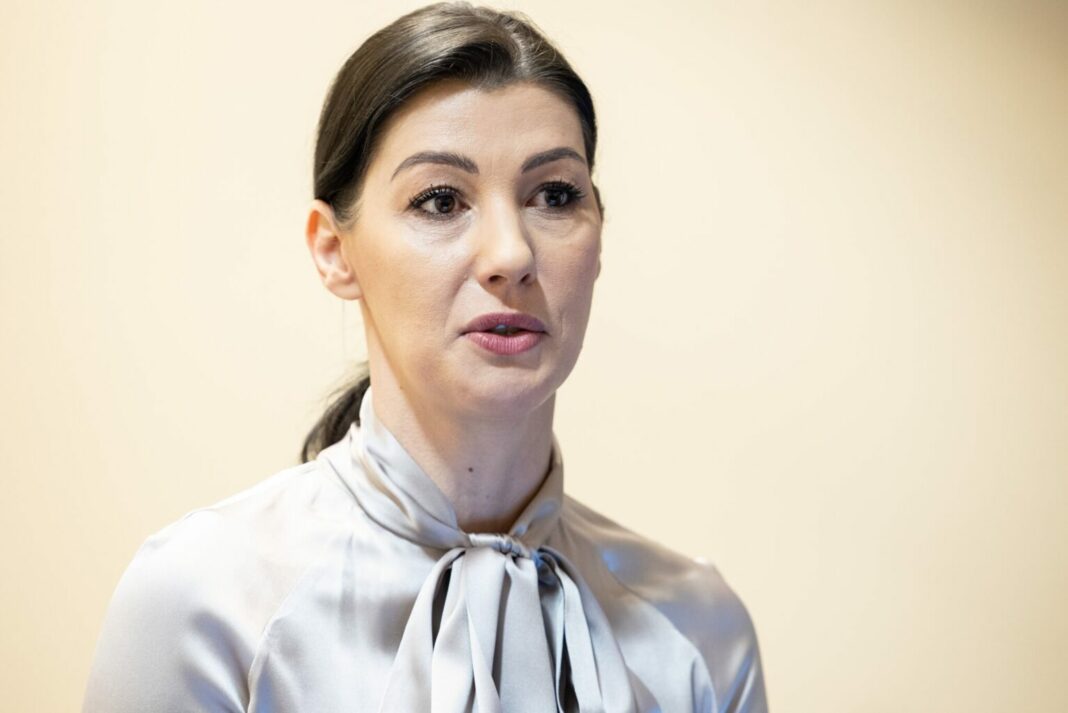By: Sara Kovač (Nova24tv.si)
“We will soon face a similar staffing crisis in the judiciary as we currently have in the healthcare sector,” said Minister of Justice Dominika Švarc Pipan in an interview with the newspaper Dnevnik, to which one of her former professors, Dr Miha Pogačnik, also responded. According to Pogačnik, there should be no crisis in the judiciary – given that Slovenia has the highest number of judges per 100,000 inhabitants among the European Union countries. “The Minister will have to roll up her sleeves and undertake fundamental systemic and structural changes so that the crisis does not happen,” advised the international law expert, who also jokingly wrote that if someone decides to sit on the ministerial chair, wait for a year, and then declare that there will be a crisis, this is not the most suitable person for this type of post.
Slovenia has the highest number of judges per 100,000 inhabitants among the 27 European Union countries, according to the European Commission’s EU Justice Scoreboard. Croatia is in second place, followed by Luxembourg, Bulgaria and Hungary. It should be noted, of course, that a high number of judges does not mean that there is no backlog of cases. On the contrary, Slovenia is probably also a champion in this respect. The backlog of cases has been dragging on for years, and according to the Supreme Court, the number of pending cases reached a record high of 732,000 in 2004. However, according to some media reports, in 2021, the courts settled more cases than they received.
“The Minister has predicted a crisis in the judiciary. But isn’t Slovenia one of the countries with the highest number of judges per capita? Being a minister in Dr Golob’s government is, in my opinion, a top job. It seems to me that this is all there is to it: you get into office, and after a year, you predict a crisis,” wrote Dr Miha Pogačnik, an expert in international law, who reacted to the Minister’s statement, who said that, similarly to healthcare, we can soon expect a crisis in the judiciary. He also recalled that there are clearly too many judges in Slovenia and that this is a matter of system and organisation. “What is the Minister going to do with all these divisions of Slovenian judges?” he also wondered.
Just as doctors are not to blame for the crisis, neither are judges
According to Pogačnik, the long wait times in healthcare are not the fault of the doctors, but of the organisation and the system, or they may even be artificially created. And in the justice system, there are two big problems – namely, the backlog of cases and the European Court of Human Rights (ECHR) – which are two sides of the same coin. Most of the cases that come before the ECHR from Slovenia get there because people do not get a decision from the court within a reasonable time – which is not a matter for the judges to solve, but a matter of better organisation. “Just as this problem is not the fault of the doctors, this is not the fault of the judges,” said Pogačnik, who believes that it is not true that judges are incompetent and bad. Of course, there are also bad judges in our system – people who, either because of their own incompetence or because of their dependence on certain structures, are not fully independent. But in Pogačnik’s view, such people are more often than not in the minority.
“Most judges are professional and capable – but they are not in charge of dealing with the system. The Ministry of Justice and the Minister, who has been in office for a year and has now suddenly realised that after a while, there will come a crisis, have to deal with making the system effective,” Pogačnik stressed, adding that the Minister is responsible for the system and the organisation. “She has the highest number of judges per capita in Europe, and she should do something about it. A better system needs to be put in place,” he added, noting that apart from Lovro Šturm, we have never had a strong Minister of Justice. In all governments, the Ministry of Justice has been treated as a peripheral ministry – and if the rule of law is to prevail, the Ministry of Justice must become a crucial player, or at least as important as the Ministry of the Interior, the Ministry of Foreign Affairs or the Ministry of Defence. The Ministry of Justice has always been neglected, when in fact, it is very important.
Most of the cases that end up in Strasbourg get there because Slovenia’s procedures are too slow
It should be pointed out once again that the Ministry of Justice is one of the key ministries in the country – also due to the fact that prominent politicians, including Deputy Prime Minister Tanja Fajon, keep going on and on about the rule of law. The Ministry of Justice should be the department that receives the most attention, in terms of organisation, structure and efficiency. “If we have the largest number of judges and if the Minister does not want to roll up her sleeves and get to work, then her last argument can only be – given that Slovenia has a low crime rate –- that Slovenian citizens are clearly a quarrelsome nation,” said Pogačnik, who reiterated that most of the cases that come before the ECHR are not even substantive, but are related to the right to be tried within a reasonable time. These are two sides of the same coin. “We clearly have a problem in the organisation and the system – which is the responsibility of the Minister, not the judges,” concluded the former professor of the current Minister of Justice.

